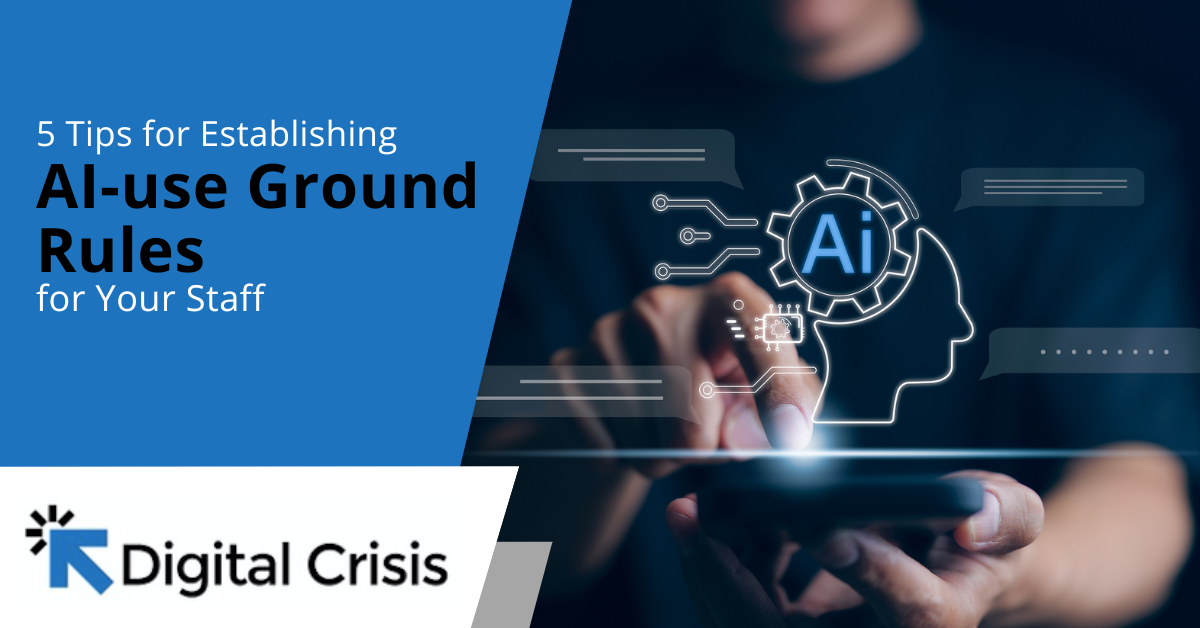Antwort What are the 5 rules of AI? Weitere Antworten – What are the 6 rules of AI
Learn about the principles of responsible AI – fairness, reliability & safety, privacy & security, transparency, inclusiveness, and accountability specifically for a learning environment.Artificial Intelligence (AI) is an evolving technology that tries to simulate human intelligence using machines. AI encompasses various subfields, including machine learning (ML) and deep learning, which allow systems to learn and adapt in novel ways from training data.Five critical success factors for AI implementation
- Solve real business problems.
- Maximise value through business change.
- Enable experimentation and prioritise data engineering.
- Create synergy between data scientists and the business.
- Always consider the ethical implications.
What are the 7 principles of trustworthy AI : ✓ Ensure that the development, deployment and use of AI systems meets the seven key requirements for Trustworthy AI: (1) human agency and oversight, (2) technical robustness and safety, (3) privacy and data governance, (4) transparency, (5) diversity, non-discrimination and fairness, (6) environmental and societal well …
What is the golden rule of AI
Understanding the AI Model Golden Rule Ramifications
The AI system should treat humans with respect and dignity. The AI system should not harm or allow humans to come to harm.
What is the first rule of AI : First Law: A robot may not injure a human being, or, through inaction, allow a human being to come to harm.
What are the Five Big Ideas in AI
- Big Idea #1 – Perception. The ability to see, hear, or become aware of something through the senses.
- Big Idea #2 – Representation & Reasoning.
- Big Idea #3 – Learning.
- Big Idea #4 – Natural Interaction.
- Big Idea #5 – Societal Impact.
A robot may not injure a human being or, through inaction, allow a human being to come to harm. A robot must obey orders given it by human beings except where such orders would conflict with the First Law. A robot must protect its own existence as long as such protection does not conflict with the First or Second Law.
What is artificial intelligence * 5
Artificial Intelligence is a method of making a computer, a computer-controlled robot, or a software think intelligently like the human mind. AI is accomplished by studying the patterns of the human brain and by analyzing the cognitive process. The outcome of these studies develops intelligent software and systems.A strong AI code of ethics can include avoiding bias, ensuring privacy of users and their data, and mitigating environmental risks.The "Goldilocks Rule" in AI refers to finding the right balance or "sweet spot" when designing or training AI systems. It is inspired by the story of Goldilocks and the Three Bears, where Goldilocks finds the optimal choice that is "just right" for her.
First Law: A robot may not injure a human being, or, through inaction, allow a human being to come to harm.
What is the Big 5 theory of : Definition of Big Five Personality Traits:
The Five Factor Model breaks personality down into five components: Agreeableness, Conscientiousness, Extraversion, Openness, and Stress Tolerance.
What is the Big 5 process : An Easy Way to Remember the Big 5
Some use the acronym OCEAN (openness, conscientiousness, extraversion, agreeableness, and neuroticism) to remember the Big 5 personality traits. CANOE (for conscientiousness, agreeableness, neuroticism, openness, and extraversion) is another option.
Are there 4 basic AI concepts
Indeed, to delve deeper into the mechanics of AI, it's essential to grasp four fundamental concepts: categorization, classification, machine learning, and collaborative filtering.
AI, does not have an IQ in the traditional sense. IQ is a measure designed specifically for humans to assess certain cognitive abilities like reasoning, problem-solving, and understanding complex ideas. It's based on standardized tests that are tailored to human thought processes and cultural contexts.Basically, AI is the ability of a machine to display human-like intelligence to perform various tasks, like planning, reasoning, creativity, and planning. Today, you can see AI being implemented in self-driving cars, adaptive learning machines, mobile applications, chatbots, and various other applications.
Do AI have morals : The ethical and moral aspects of AI largely depend on how they are programmed, the data they are trained on, and the goals they are designed to achieve. It's the responsibility of humans to ensure that AI systems are developed and used in ways that align with ethical standards and societal values.








